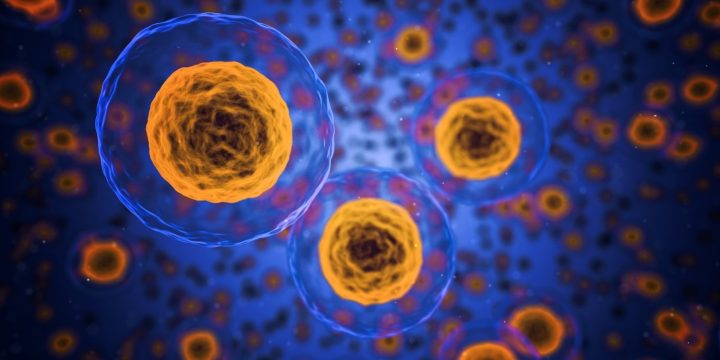Basic research on cell signaling uncovers new targets for drug-based disease therapies

The organs in our bodies consist of multiple different types of cells which are in constant communication with each other and their environment. Thousands of signals are also constantly transmitted inside our cells to inform them of their status and what actions to take. These signals concern for example whether there is enough energy for the cell to grow, whether the cell should sacrifice itself due to too much injury, whether the cell should specialize to perform a specific task or to move away from its current environment. The signals that prompt cells into certain actions are mediated by different signaling molecules in the cell. The code for these signals comes from the genes in the DNA, but the real messengers in the cells are the RNAs that are written from the DNA code and the proteins that are written from the RNA. On top of these messengers in the cells, signals in the cells are mediated by a mass of other small molecules that we absorb from our food. These molecules are usually processed by the proteins in the cells.
In my thesis research I studied how changes in a certain region of a cell signaling protein molecule in the cell surface of cells change what signals the signaling molecule sends out. Different signals lead to different actions in the cell. I focused on this specific region since it was not yet fully known how the region modifies the signals these signaling molecules send. My research group has chosen to study these specific signaling molecules because we know that they regulate the normal function of many important organs such as the heart, and that their disturbed signaling can cause cancer. I discovered that this region in the signaling molecule acts as a contact site for other cell signaling molecules, like one of the hands in a handshake. This contact determines where in the cell these cell signaling molecules reside and what signals they send.
While this may seem like a minor finding, findings such as these are the backbone of all drug discovery. Basic research in cell signaling is needed to first find out if the signaling molecule is a viable target for a drug for a certain disease, and second, to know how the signaling molecule should be most effectively targeted so that the function of the cell signaling molecule is modified as desired. The value of basic research is easily overlooked over applied research that specifically tries to find a way to target a specific target molecule to treat a certain disease. Without basic research, however, we cannot find new drug targets or new ways to target already established drug targets, since we do not know how the cell signaling molecules work in the first place. Applied research stands heavily on the shoulders of basic research.
My research specifically focused on the cell signaling that pushes heart muscle cells to grow, an area in which findings can help us design drugs to revitalize heart muscle cells that have become defective and are about to die from too much strain, such as in heart failure. Giving growth signals to the heart muscle cells can make them willing to survive and to even grow again. While more research is needed on the cell signaling connections I found as a viable drug target, my basic research may uncover new ways to potentially treat heart failure in the future.
MSc Katri Vaparanta
The writer is a late-stage Ph.D. student in biomedicine and a bioinformatician who has focused her research on solving the mysteries of cell signaling both experimentally and computationally.
